rhodri davies
wound response
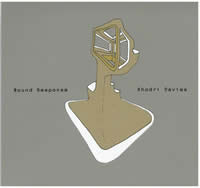
rhodri davies: wound response (alt.vinyl av038 LP, 2012)
OUT OF PRINT
“The sound is hellish but engaging – Each track ends drenched in a squeal of feedback, gasping for breath before diving back in.” – Clive Bell, Wire Magazine, October 2012
“Rhodri Davies thinks and plays far beyond the harp is able to.” - Yasunao Tone
“Rhodri Davies drags the harp into the arena of overdrive, and weaves hypnotic blocks of distorted beauty. Incredible stuff.” - Lasse Marhaug
“Filling the space with poignant sound and beautifully floating melodies, WOUND RESPONSE makes you want to stay lost in its resonance for a long long time." Okkyung Lee
five knots
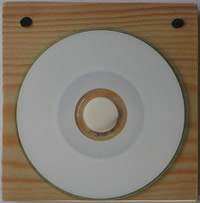
rhodri davies: five knots (compost & height split series 007, shared with dominic lash, 2008)
OUT OF PRINT
over shadows
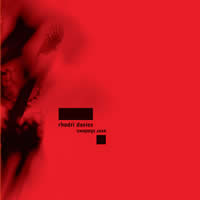
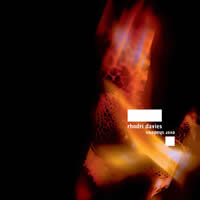
rhodri davies: over shadows (confront cd 016, 2007)
OUT OF PRINT
"A sympathetic collaborator in many different contexts, Rhodri Davies has been under-recorded as a solo artist. In the course of making his name as an improvising harpist, he has sustained a long public argument with his instrument. He’s continually worked to confront an aural signature that’s loaded with saccharine, genteel or otherwise unpleasant associations. His excellent Trem, released in 2001, was full of jagged and surprising sounds. This recording, made in 2004 and now released on frequent collaborator Mark Wastell’s Confront label. Continues his defamiliarisation of the instrument.
It would be very hard for the first time listener to guess that it was made on a harp. On this occasion Davies plays it with an E-bow – a device that produces endless sustain and which has long been part of his soundmaking arsenal. The choice might have led to another glacier-paced drone (and the world has heard enough of those lately), but what makes this such a rewarding release is the speed with which Davies shifts the sounds he is making. Instead of immersive slo-mo, Davies keeps the music mobile, drawing the listener through a succession of warm, often dissonant, acoustic states.
The result is like a speeded-up Eliane Radigue, as full, harmonically rich tones ease gently into each other. The evolution of the improvisation is alert and unforced, and each new phase feels part of a developing argument. Davies’s work is about sound and sonic relationships rather than technique or spontaneous self-expression. Here, poised somewhere between improvisation and composition, he transforms the harp into a vibrant and responsive tone generator."
will montgomery, wire magazine issue 286, december 2007
camber
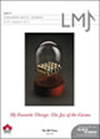
rhodri davies: camber (track for leonardo music journal CD, volume 17, 2007)
perdereau

rhodri davies: london strings: perdereau (absinth records cd 04, 2004)
OUT OF PRINT
“Rhodri Davies' "Perdereau" belongs more to the domain of composition than improvisation - though, as I've argued on numerous occasions, the distinction is becoming ever less important - using no fewer than four players (the other performers are John Wall, Jonathan Dunstan and Taku Unami), Davies' objective was to sound as many strings as possible, 40 out of a possible 47, and record the resulting clusters from inside the soundboard. The first section plays on the idea of decay, and the latter half of the piece concentrates on sustain through the use of e-bows. It's a solemn slab of music, in keeping with its dedication to the memory of French new music promoter and journalist Jacques Perdereau, whom Davies met at the Rencontres Européennes de Musiques Improvisées in Paris in 1998.”
dan warburton, paris transatlantic, october, 2004
trem
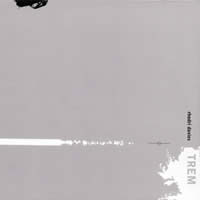
rhodri davies: trem (confront cd 011, 2001)
OUT OF PRINT
"Rhodri Davies applies free jazz and experimental principles to the harp. Not the blues harp. The Welsh harp. Trem is the finest of the three albums of his work I’ve heard, but bear in mind we’re already drawing lines in the sand of a very narrow beach. Recorded live as part of a season of experimental music at St Michael and All Angels church in west London, Davies offers up bowed detuned strings, sudden harsh plucks and prepared sounds to the ecclesiastical arches. Given that the only audience response we hear is a lone cough during an especially quiet section, they return his trust with a phenomenal sense of atmosphere. Occasional long stretches of all but imperceptible low-level rustling noise may cause some physical discomfort, but Trem is full of stunning moments of apparently random coalescence."
stewart lee, sunday times, 13th of april 2003
“These interesting sonic experiments do not disguise Rhodri’s high degree of skill as an improviser, and one who knows his chosen instrument back to front and inside out; he is fully informed as to the liberties he may take. ‘Plosif’ and ‘Berant’ deliver some of the strongest, most innovative and most accomplished playing I’ve heard anywhere, on any instrument.”
ed pinsent of trem, the sound projector, issue 12, 2004